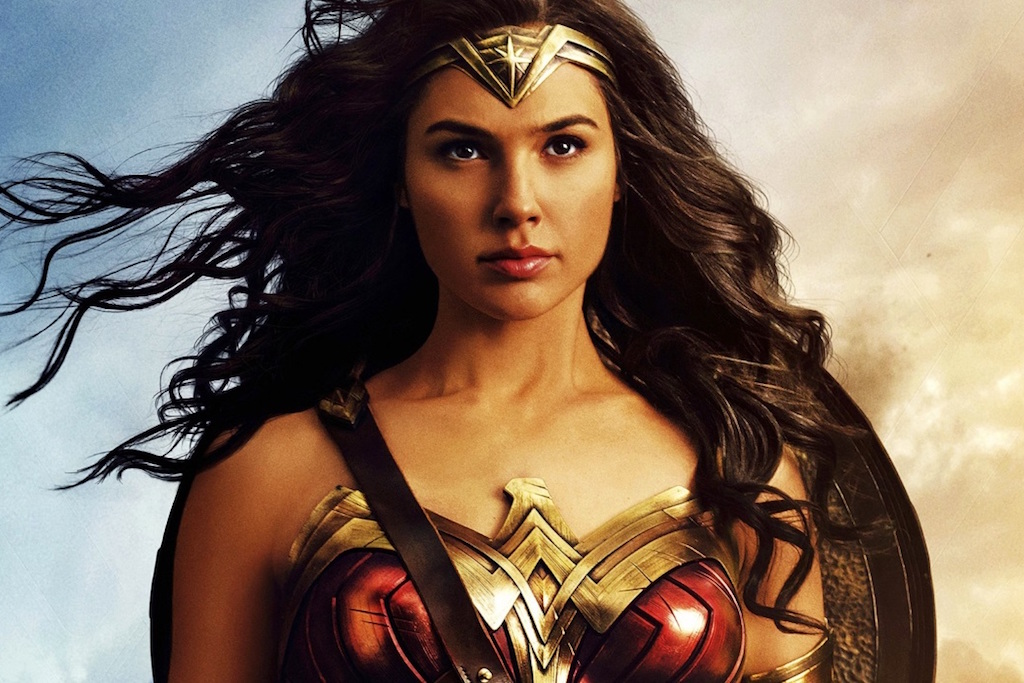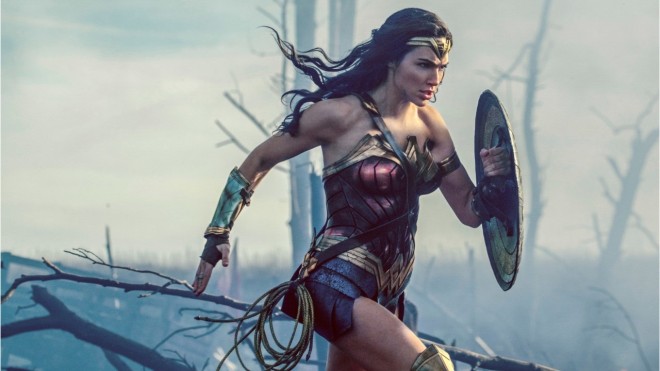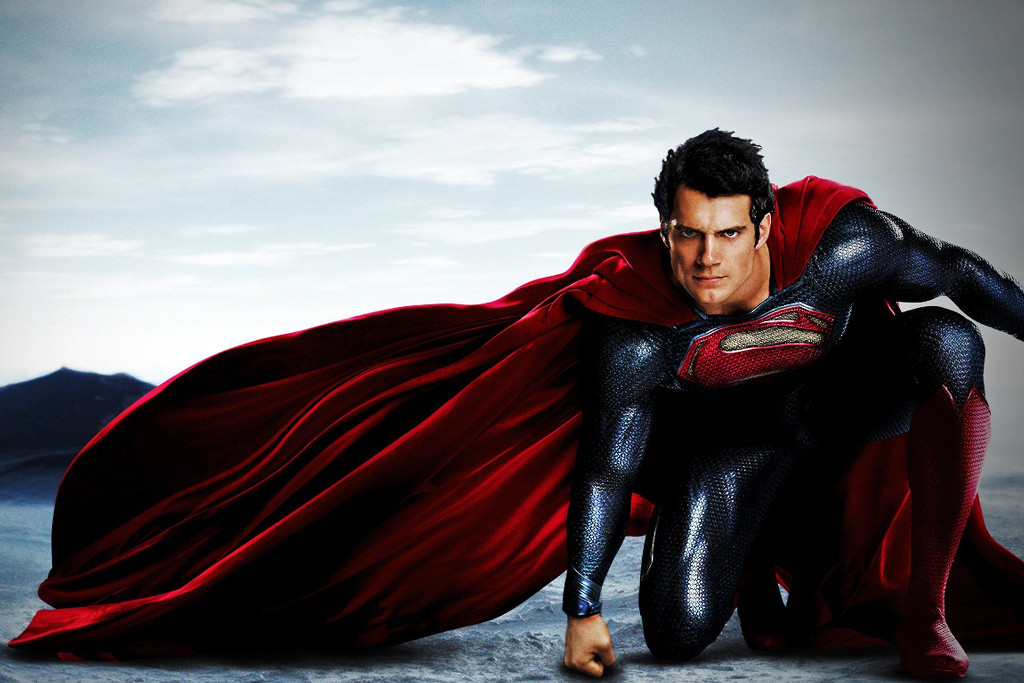How Wonder Woman Became This Generation’s Superman
There's a reason people are so in love with this film.

This article contains spoilers for pretty much every DC film released in the past five years.
–
Let’s be real for a second. That fallow period a month before Wonder Woman hit theatres had us all terribly worried. Where were the magazine covers, the toys — the promotional deluge that had accompanied every other DC film? Could it be that it simply wasn’t good, and the studio was trying to save money? Were they deliberately not marketing a film starring a woman?
Then Wonder Woman arrived, and it was great. It was bright and hopeful and clear-eyed about what it was and what it wanted to be. Sure, some of the critical responses left a lot to be desired, and there’s still a truly asinine row about a cinema’s decision to hold women-only screenings of the film — you will believe a man can cry — but you know what? None of that matters. Not one bit. Because of this:
My producer just sent me this… ABSOLUTELY INCREDIBLE! This makes every hard day worth it. Thank you to whomever wrote it!!❤️❤️❤️❤️❤️❤️ pic.twitter.com/3DzIaMueIh
— Patty Jenkins (@PattyJenks) June 11, 2017
That’s Wonder Woman director Patty Jenkins sharing the mother lode of positive reactions to the film. The immediate temptation is to question it, because this is 2017 and this is the internet, but social media is brimming with genuinely heartwarming stories about what Wonder Woman means to people.
The film has become a cultural touchstone; a reference point we’ll look back at in five or 10 or 20 years and remember where we saw it first and how it shaped what was to come. It’s a ray of hope in the middle of two all-time horrible years. It’s clearly resonating around the world, and there’s a very simple reason why: Wonder Woman is this generation’s Superman.
The Death of Superman
Before we look at what Wonder Woman did right, we need to consider all the ways in which Superman has been done wrong.
Superman is the creation of two children of Jewish immigrants; he was first published in 1938, during the Great Depression, at a time fascism was rising in Europe. The famous Richard Donner film came out in 1978, when the US was still suffering a hangover from the Vietnam War and the Nixon presidency. It’s little wonder the character resonated at a mythic level during these trying times. People needed someone with an internal compass that always pointed true, who intrinsically knew what was right from what was not.
The modern screen Superman, however, is very different. Man of Steel’s bizarre treatise was that heroism never goes unpunished; Clark Kent is explicitly warned against using his powers at pivotal moments, and the result is a character riven by doubt. In Batman v Superman, he’s still mopey and uncertain, still not sure what to do about the call to adventure — a half-baked deconstruction set back even further by the decision to kill him off at the end of the film. Seriously, the character hadn’t even been fully formed before the reset button was hit.
There are many reasons why this is important, but one stands out in this political climate: Superman is the ultimate parable of the immigrant. He’s someone who came to a country and a planet that wasn’t his, and he made it his home because he loved it. He is literally an illegal alien come good, able to represent all that a migrant nation can stand for.
Superman has been a paragon of hope for 80 years — someone who has remained steadfast as the times and the troubles changed. Take away all that and you’re not just taking away what makes Superman a great character; you’re taking away what makes him Superman.
Now we’re in the darkest timeline, when our major political parties are continually ignoring the pleas of the dispossessed and downtrodden, when discrimination and intolerance hold office, and we don’t have a Superman to show us that it’s possible to rise above the hate and fear. That’s where Wonder Woman comes in.
It Ain’t Easy Being Cheesy
Wonder Woman broke a lot of ground — some of it financial, some representational. There are important, fascinating discussions going on about the feminist implications of the film. But one of the film’s most novel ideas is its commitment to a resolutely old-school approach to heroism. It’s something we haven’t seen on screens for a while.
Love this quote from @PattyJenks pic.twitter.com/UBiZcoWmmm
— Chris Evangelista (@cevangelista413) June 1, 2017
That quote is from an interview in The New York Times, and it feels like a breath of fresh air. In the same way that the various iterations of Superman made simple, emotional sense, this iteration of Wonder Woman is exactly what we need in an era of weapons-grade cynicism.
She is someone who can fight for what is right, and inspire others to do the same; someone who is no stranger to oppression, or self-doubt, but maintains a clear-eyed view of our species’ essential goodness. She comes to realise that while we contain good and evil, it’s the former that is worth protecting. And, most of all, she understands that fighting to protect something makes you far stronger than fighting to tear something down.
Wonder Woman is exactly what we need in an era of weapons-grade cynicism.
Committing that last point to screen also helps flesh out Wonder Woman in ways that differentiate her from Superman. Just like him, she’s a stranger in a strange land, someone who isn’t human who has to learn how to fit in to the mortal world. But unlike Superman, WW is born and trained to be a weapon — an instrument of battle designed to defeat Ares, the god of war. It’s no coincidence that Wonder Woman’s final victory in the film comes when she puts down her sword and reflects Ares’ aggression onto himself.
She doesn’t defeat him because of her destiny, or some other Campbellian claptrap — it’s because she makes a conscious decision to protect the people who need her most. It’s not just a triumph over determinism, it’s a victory for anyone feeling boxed in by their life or their past or their family.
Likewise, the first time she appears in full costume that will stay with anyone who has seen the film. She crosses no man’s land, she shields the soldiers behind her from the soldiers in front, protecting humanity from its worst urges. It’s rich in symbolism, and it’s also instantly iconic. It’s not really about the dudes, or saving dudes — it’s the moment she becomes her own person. It’s the moment she becomes Wonder Woman.

Myth Congeniality
Movies are important; not just because of the La La Land-style glamour and stardust, but as a vector for mythology. Comic books aren’t for all kids anymore, and it’s hard to get most younger viewers to sit through classic cinema, or even cartoons. It’s all about what’s new and what’s current. This is why Wonder Woman carries such power — not just as a positive character, but one with depth too.
Superman’s infallibility makes him an ideal, and messing with that through his current screen version makes the character ring nothing but hollow. On the other hand, Wonder Woman has the capacity to make mistakes and learn from them — such as when she straight up kills the wrong person in this film. Yes, he’s a German war criminal, but her ensuing crisis of faith makes her infinitely relatable.
That fallibility has a real-life analogue, too. Gal Gadot did a two-year stint in the Israeli Defence Force, and has been outspoken in support of her country. If that’s a dealbreaker for some, that’s more than fair enough. There’s a lot to unpack, and it’s worth unpacking, but I’d like to think it can exist alongside the sheer joy that finally, finally seeing Wonder Woman on screen has brought to so many.
Wonder Woman isn’t just for those us who belong to generations denominated by letters close to the end of the alphabet, calcified in our politics and our echo chambers, she’s for a generation of children who look up at her and feel a tug of hope for the future, theirs and our own.
Wonder Woman’s greatest superpower is once again something that’s all too rare on- or off-screen: empathy. Yes, she can leap tall buildings in a single bound, and fight German soldiers backwards with heels on — but she’s also the kind of person who rails against the sacrifice of innocent lives, and really wants to play with babies, and who can look a PTSD-addled soldier in the eye and gently ask: “Who would sing for us?”
How absolutely wonderful.
–
Hari Raj has worked as a journalist and editor in Malaysia, China, and Australia. He tweets about pop-culture ephemera at @jarirah.
–
Love film and TV? We’re holding our inaugural Video Junkee festival in July, a new annual event for lovers and creators of online video. Video Junkee is on July 28 & 29 at Carriageworks in Sydney, featuring keynotes, masterclasses, screenings, interviews and more. Tickets are on sale now.
